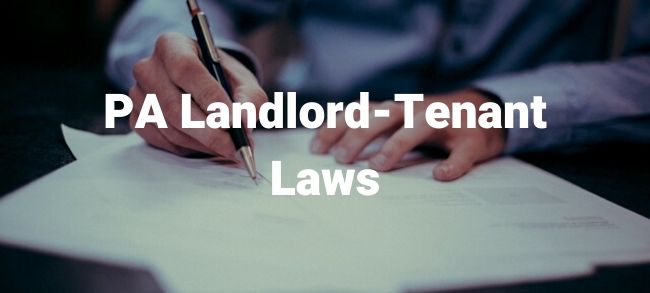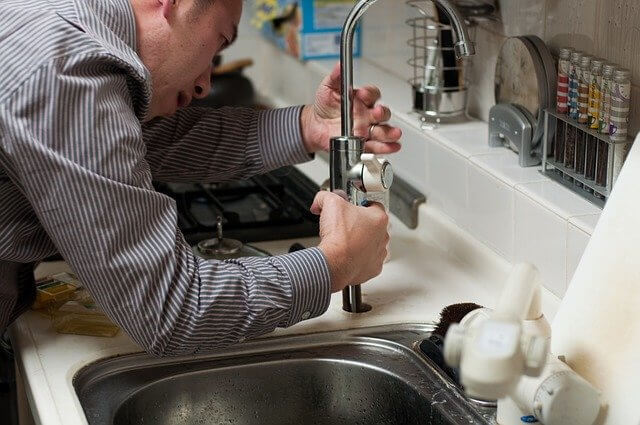
If you’re a new landlord in Pennsylvania, you have just embarked on a lucrative journey to earning passive income. That being said, purchasing an investment property is only the beginning.
Managing the property is a huge feat. That’s why having a property management company like Grow PM can be a huge stress reliever.
As a landlord, you need to have a solid understanding of all federal, state, and local laws that pertain to the parties in a lease. Having a good understanding of these will help you avoid many legal issues.
Keep on reading for an overview of everything you need to know about Pennsylvania landlord-tenant laws:
Required Landlord Disclosures
By law, you must disclose certain information about your rental properties to prospective tenants.
- Nonrefundable Fees: Unlike many other states, Pennsylvania does not have laws regarding nonrefundable fees. You are free to charge any reasonable amount that you deem fit.
- Security Deposit: There is a maximum amount of security deposit that you can require from prospective tenants. This amount is a sum equal to twice the monthly rent price of the first year of their lease. After the first year, you can charge no more than an amount equivalent to the cost of one month’s rent.
You must deposit all funds exceeding $100 and those you’ve held for more than 2 years in an escrow account that is regulated either by the state or federal government. You must also notify your tenant of the name and address of the institution holding the money.
After the second year of providing you with the security deposit, the tenant is entitled to collect interest on it. Once the tenant moves out of the property, you have 30 days to return either all or a portion of the security deposit to them.

- Rights of Domestic Violence Victims: In Pennsylvania, there are no statutes in this regard.
- Retaliation: You must not find a tenant, refuse to renew their lease, or terminate their lease for them being involved in a tenant’s organization.
- Lead Disclosure: As a landlord, the law requires you to disclose all known lead paint hazards. You must provide your tenants with an information pamphlet (pdf) on lead-based hazards as an attachment to a written lease.
Tenant Rights in PA
Rights
- Notices & Entry: Tenants in Pennsylvania are entitled to reasonable notice of entry. As a landlord, you cannot enter a tenant’s premises as you please. That said, there is a statute that defines how much notice you must give your tenant.
- Quiet Enjoyment: Your tenant has the right to peaceful possession of the property they have leased. As a landlord, this means you cannot enter the property without reasonable notice. You also cannot withhold utilities from the tenant or deny them property access by changing the locks.
- Habitability: Your property must meet certain state safety standards. These standards apply to property construction, maintenance, and safety. For example, a tenant must be provided with access to a supply of clean drinking water. They must also have proper sewage and waste disposal and smoke detectors that work.

- Eviction: In Pennsylvania, the law requires that you provide a valid reason to evict a tenant. A good example is the non-payment of rent. Even in that case, only a court can provide you with the legal means to evict your tenant.
- Security Deposit: After a tenant has moved out, you must either return a portion or all of the security deposit within one month of their departure.
Responsibilities
- Follow all the terms of the lease
- Be reasonably quiet
- Repair damage that they have caused
- Keep the home clean
- Pay rent on time
Landlord Rights in PA
Rights
- The right to evict: You can evict your tenant for any legal reason, for instance, the nonpayment of rent.
- The right to raise your rent: You have a right to raise the rent amount according to your lease agreement.
- The right to collect rent or any other fees outlined in the lease agreement.
- The right to enter the rental unit: You may enter the unit to do things like show the unit to prospective tenants, complete maintenance or repairs, or in the event of an emergency.
Responsibilities
- Provide the legally required disclosures
- Prepare a legal written lease or rental agreement
- Provide habitable housing
- Meet state security deposit and return rules
- Follow state rent rules
- Comply with anti-discrimination laws
An Overview of the Landlord-Tenant Laws in Pennsylvania
1. Tenant Privacy
Tenants have the right to quiet enjoyment of their rental. As a landlord, you must provide a tenant with adequate notice prior to entering the property. Adequate notice is generally considered to be a minimum of 24 hours during regular business hours.
Regular business hours are considered to be between the hours of 8:00 a.m. and 6:00 p.m., Monday through Friday. Potential reasons for entry may include property maintenance or repair services or showing the property to potential tenants.
2. Maintenance & Repairs
As a landlord, it’s your responsibility to keep the property habitable. Habitable means that the property has:
- Working locks
- Properly maintained railings, stairways, and floors
- Adequate garbage receptacles
- Effective weatherproofing on the roof, walls, and windows

- Clean and vermin-free appurtenances and grounds
- Heating, lighting, and electrical facilities that meet code standards
- Hot and cold water supply that follows state code
- Up-to-code plumbing systems
3. Fair Housing Laws
According to the Fair Housing Laws in Pennsylvania, it’s illegal for a landlord to discriminate against a tenant based on certain protected classes. In all 50 states, federal law makes it illegal to discriminate based on age, disability, sex, religion, national origin, color, race, citizenship, and/or genetic information.
Pennsylvania state law also prohibits discrimination based on having a relationship or association with a disabled person, holding a GED rather than a high school diploma, or using service animal(s).
4. Security Deposits
Many, if not all, landlords in Pennsylvania require a security deposit. A security deposit helps to:
- Remedy defaults in rent payments
- Clean the premises after a tenant has left
- Repair careless or negligent damage caused by a tenant
During the first year of renting, the maximum you can charge your Philadelphia tenant is twice the amount of their monthly rent. In the following years, you cannot charge more than the amount of one month’s rent.
5. Renters Rights to Withhold Rent
In Pennsylvania, a tenant is allowed to withhold rent only after a Government agency or department has certified that the premises are uninhabitable.
6. Small Claims Lawsuits
Conflicts over the use and return of security deposits are pretty common. Tenants have the right to sue you in a small claims court (Magisterial District Courts) for the return of their deposit, up to a dollar amount not exceeding $12,000.
Disclaimer
The information herein is not a substitute for legal advice from a qualified attorney. Laws change, and this post may not be up-to-date at the time of your reading. Please give us a call at (267) 414-0970 if you have any questions in regards to this article or any other aspect of your property management needs.






